The Everest Base Camp Trek is undoubtedly one of the most sought-after adventures globally, leading you into the heart of the Himalayas and offering an up-close view of the world's tallest peak, Mount Everest. But before embarking on this journey of a lifetime, it's essential to understand the cost of the Everest Base Camp Trek. The cost can vary greatly depending on factors such as the time of year, type of service, choice of trekking company, and more. This article aims to give you a comprehensive breakdown of the costs associated with the Everest Base Camp Trek, so you can effectively budget for your unforgettable adventure.
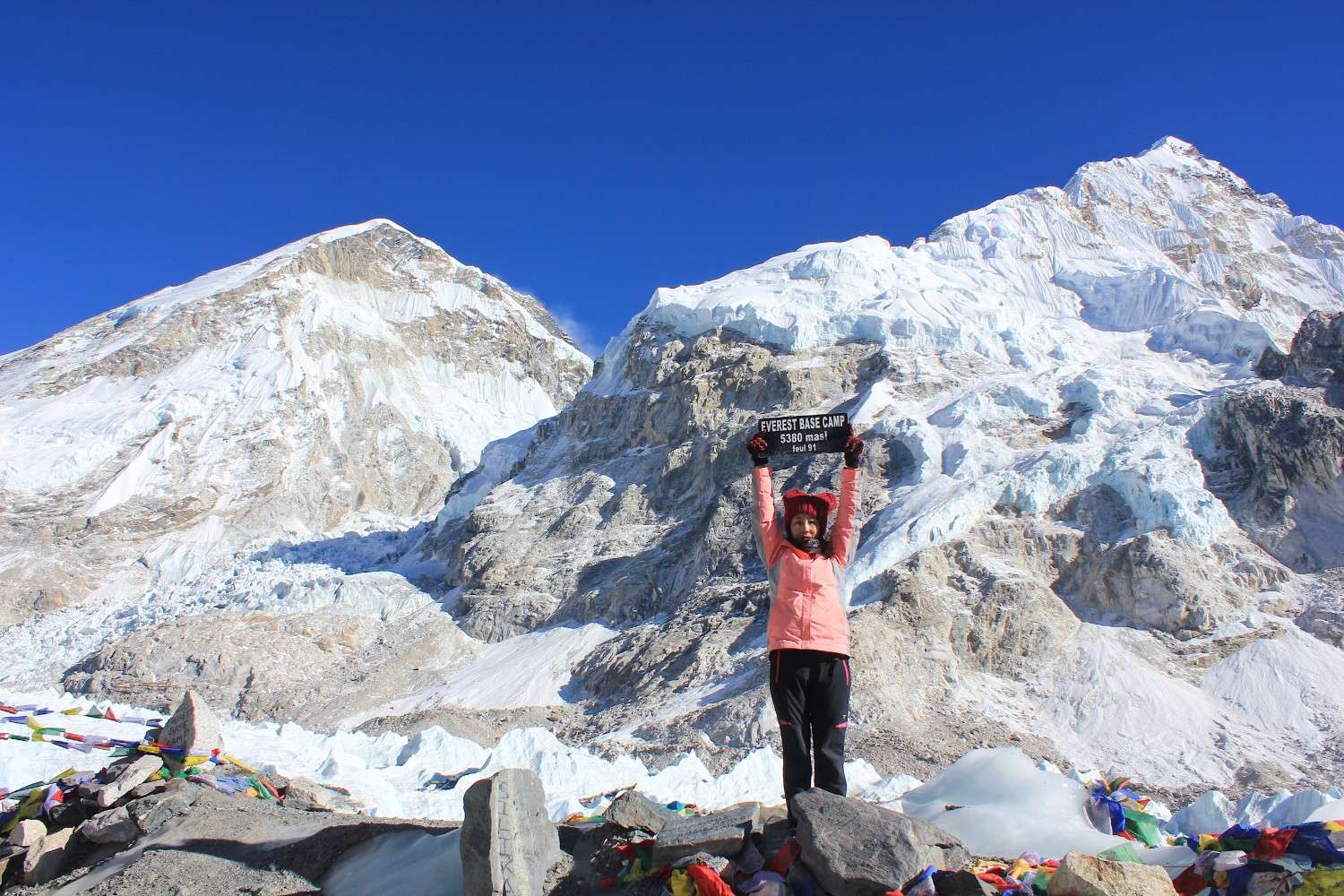
Trekking Packages and Costs
One of the major factors determining the cost of the Everest Base Camp Trek is the type of trekking package you opt for. These packages can range from budget to luxury, each offering a different level of service and comfort.
A typical budget or standard Everest Base Camp Trek package offered by companies like Luxury Holidays Nepal Pvt. Ltd includes a guide, porters, accommodation, meals, transportation, and necessary permits. This can cost anywhere between $1,300 to $1,600 per person.
For those seeking a more comfortable experience, luxury packages are available. These offer amenities like high-end accommodations, better meals, a more personalized service, and even the option of helicopter flights for certain legs of the journey. Luxury packages could cost upwards of $3,000.
However, it's crucial to thoroughly research and choose a reliable trekking company like Luxury Holidays Nepal. Remember, a low cost often means compromises in safety, comfort, or experience. The key is to strike a balance between the cost and the quality of service you prefer for your trek.
Permit Costs
There are several permits that you need to acquire for the Everest Base Camp Trek. These permit costs are generally included in your trekking package but it's important to be aware of them:
Khumbu Pasang Lhamu Rural Municipality Entrance Permit: This permit replaced the TIMS (Trekkers' Information Management Systems) card for treks in the Everest region. It costs NPR 2,000 (about $20) and is obtained in Lukla.
Sagarmatha National Park Entry Permit: Sagarmatha National Park is a UNESCO World Heritage Site, and the EBC Trek goes through this park. The permit fee is NPR 3,000 (about $30) and can be obtained in Kathmandu or Monjo.
Gokyo Lakes Trek (if applicable): If your itinerary includes a detour to the beautiful Gokyo Lakes, you won't need any additional permits. The aforementioned permits cover this region as well.
Accommodation and Meals
Accommodation and meal costs are significant factors that contribute to the overall cost of the Everest Base Camp Trek.
Accommodation: The cost of accommodations during the trek can vary depending on the level of comfort you prefer. Basic teahouses and lodges, which provide simple rooms with shared bathrooms, can cost between $5 to $10 per night. Luxury lodges offer superior comfort with private rooms and attached bathrooms, costing up to $150 per night in some places.
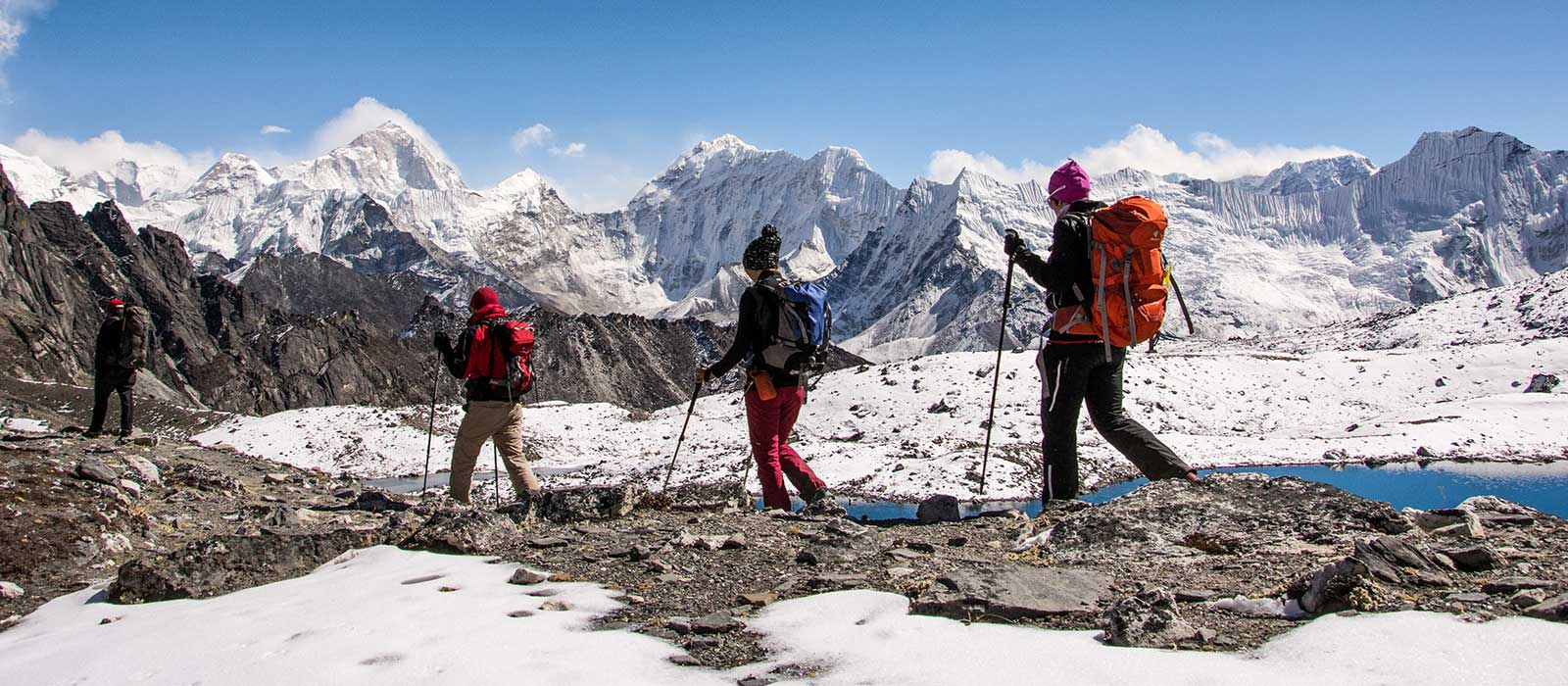
Meals: Meals along the Everest Base Camp Trek are typically served in the teahouses where you'll be staying. A meal can cost anywhere between $2 to $6, depending on the food item and the altitude (prices increase as you climb higher). Be prepared to spend around $25-$30 per day on meals.
Please note that these costs are typically included if you're booking a full-package trek. In such cases, your trekking company, such as Luxury Holidays Nepal Pvt. Ltd., will handle all your accommodation and meal arrangements, saving you from the hassle of dealing with these details during your trek.
Additional Costs
Apart from the core costs associated with the Everest Base Camp Trek, there are several additional costs you should be aware of, and they are as follows:
Equipment and Gear: Depending on what you already have, you may need to purchase or rent trekking gear and equipment. This could include items such as hiking boots, down jackets, trekking poles, gloves, hats, sunglasses, and more. Costs can vary widely depending on the quality of the gear and whether you're buying or renting.
Travel Insurance: It's crucial to have travel insurance that covers emergency evacuation, as the cost of a helicopter rescue can be very high. The cost of insurance will depend on the policy and the coverage it provides.
Tips for Guides and Porters: Tipping is a common practice in Nepal and it's customary to tip your guides and porters at the end of the trek. While the amount is at your discretion, a general guideline is to budget 10-15% of your total trek cost for tips.
Personal Expenses: These include costs for things like snacks, drinks, Wi-Fi, charging electronic devices, hot showers in the tea houses, and souvenirs.
Visa Fee: Depending on your nationality, you might need to pay for a visa to enter Nepal. The visa can be obtained upon arrival at the Kathmandu airport, and the cost for a 30-day visa is around $40.
Remember to consider all these factors when planning your budget for the Everest Base Camp Trek. While some of these costs might seem small on their own, they can add up and significantly increase the overall cost of your trek.
Everest Base Camp Trek Cost – Detailed Breakdown
Trekking to the Everest Base Camp is an experience of a lifetime, but like all adventures, it comes with costs. Here’s a detailed breakdown of the potential expenses you may encounter.
- Trekking Packages: Costs can range widely depending on the length of your trek and the level of service provided. Basic Everest Base Camp Trek packages start around $1,000-$1,500. More comprehensive packages that include extra acclimatization days, side trips (like Gokyo Lakes), or luxury lodges can cost upwards of $2,500-$3,500.
- Flights: Round-trip flights from Kathmandu to Lukla typically cost around $350.
- Permits: The Sagarmatha National Park permit costs about $30, and the Khumbu Pasang Lhamu Rural Municipality Entrance Permit costs about $20.
- Accommodation: Costs range from $5 to $10 per night for basic teahouse lodging. Luxury lodges can go up to $150 per night.
- Meals: You can expect to spend between $25-$30 per day on meals during your trek.
- Equipment and Gear: Depending on whether you're buying or renting, you might spend anywhere between $200-$500 on necessary gear.
- Travel Insurance: Policies that cover high-altitude trekking and emergency evacuation may cost between $100-$200 for the duration of your trip.
- Tips: Plan to set aside around 10-15% of your total trek cost for tipping guides and porters.
- Personal Expenses: This can vary greatly depending on your personal spending habits, but budgeting $5-$10 per day is a reasonable starting point.
- Nepal Visa: A 30-day tourist visa costs approximately $40.
In total, you might spend anywhere from $2,000 to $4,000 or more on your Everest Base Camp Trek, depending on how luxurious you want your trek to be. Remember, these are rough estimates, and costs can fluctuate based on factors like exchange rates, the time of year, and personal preference.
Different Ways to Trek to Everest Base Camp
There are several ways to trek to Everest Base Camp, each offering a unique experience, level of difficulty, and perspective on the beautiful landscapes of the Himalayas. Here are a few of the most popular:
Classic Everest Base Camp Trek: This is the most common route taken by trekkers and typically starts from Lukla. This trek takes you through beautiful Sherpa villages, monasteries, and alpine forests, taking roughly 12-14 days to complete.
Gokyo Lakes Trek: This alternative route takes you through the beautiful Gokyo Valley, offering stunning views of turquoise glacial lakes and mountains. This trek is usually done in 14-16 days, and you'll also get a chance to summit Gokyo Ri for panoramic views of the Everest region.
Jiri to Everest Base Camp Trek: This trek follows the historical route taken by the early Everest expeditions and is sometimes referred to as the 'classic route'. Starting from Jiri, this trek takes about 20-24 days, offering a much longer and more strenuous journey.
Three Passes Trek: This is the ultimate Everest trekking adventure and is recommended for seasoned trekkers. It takes around 18-21 days and takes you over three high passes (Kongma La, Cho La, and Renjo La), providing spectacular views of the Himalayas.
Everest Base Camp via Island Peak: This challenging route combines the Everest Base Camp Trek with the ascent of Island Peak (6,189m), providing a taste of high-altitude mountaineering. This trek typically takes about 19-21 days.
Everest Base Camp Heli Trek: This option combines the thrill of trekking to Everest Base Camp with the luxury of a helicopter flight back to Kathmandu. It saves time and gives trekkers an aerial view of the Himalayan peaks, glaciers, and valleys.
Everest Luxury Trek: This is the perfect option for those who want to experience the Everest Base Camp Trek without compromising on comfort. Luxury lodges offer amenities like heated rooms, comfortable beds, western-style bathrooms, and fine dining.
Each of these treks offers a different experience and requires varying levels of physical fitness and preparation. It's important to consider factors like your trekking experience, physical condition, available time, and personal preferences when choosing the trek that's right for you.
Hiring guides & porters for the EBC trek
Hiring guides and porters for your Everest Base Camp (EBC) trek can greatly enhance your trekking experience by reducing physical strain, providing local insights, and ensuring safety.
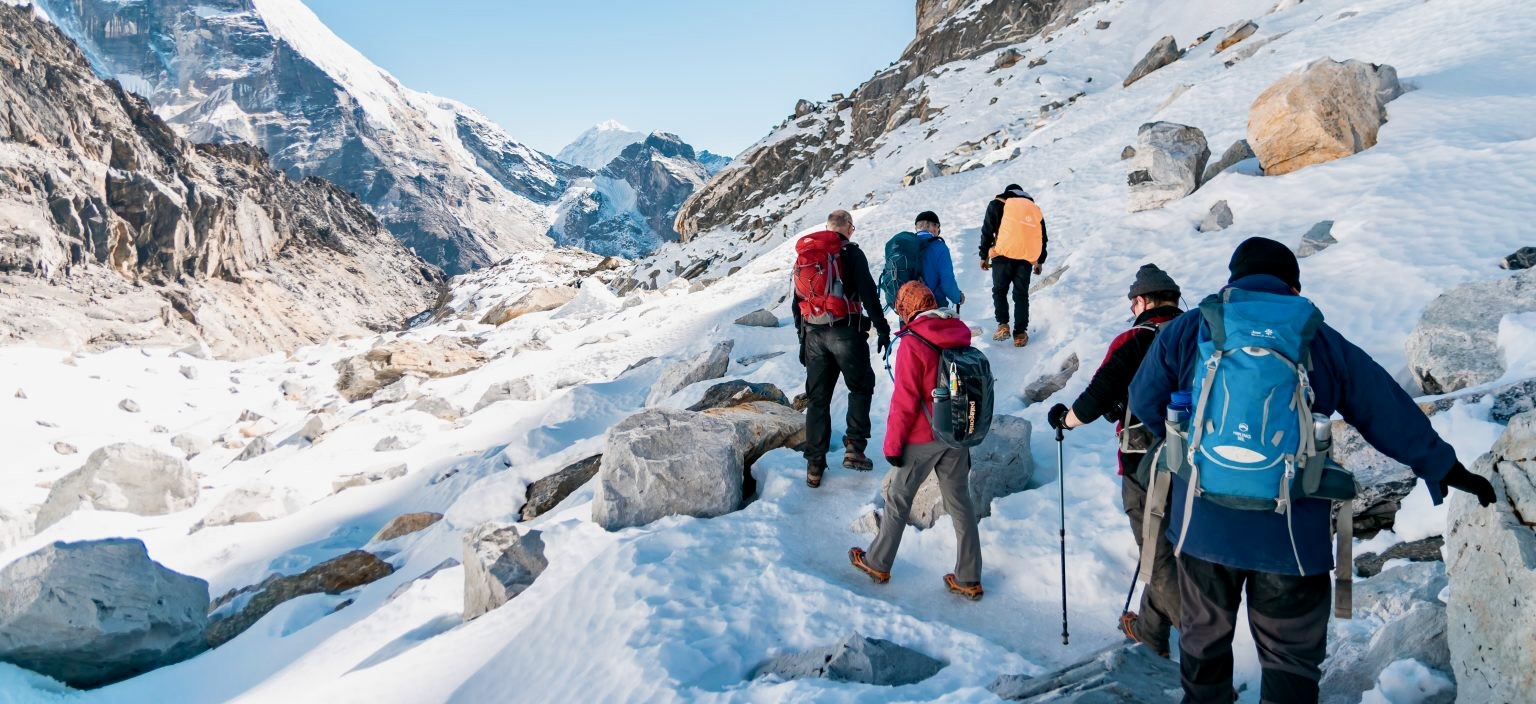
Here's what you need to know about each role:
Guides:
A guide is an experienced trekker who knows the Everest region inside out. They are responsible for leading you along the right path, providing valuable information about the local culture and natural environment, and assisting with logistical details such as securing accommodation and permits.
Some of the benefits of hiring a guide include:
- Safety: Guides are trained in first aid and have a wealth of experience handling different situations in the mountains. They know how to spot signs of altitude sickness and can guide you to the nearest health post if necessary.
- Navigation: Although the EBC trek is well-marked, there are places where the path can be confusing. A guide can ensure you don't get lost and can also introduce you to off-the-beaten-path locales.
- Cultural Connection: Local guides can provide insight into the Sherpa culture and customs, enhancing your understanding and appreciation of the region.
Porters:
A porter is someone who carries your heavy luggage, allowing you to focus on the trek and enjoy the scenery. Hiring a porter can make your trek more comfortable, particularly on strenuous sections.
Benefits of hiring a porter include:
- Reduced Physical Strain: Trekking at high altitudes can be challenging. By hiring a porter to carry your heavy gear, you reduce the risk of exhaustion and injury.
- Faster Progress: Without the burden of a heavy backpack, you'll likely find you can keep a steadier pace and enjoy the trek more.
- Supporting the Local Economy: By hiring a local porter, you're providing income for local families.
Hiring guides and porters can vary in cost, depending on the length of the trek and the level of service required. Always ensure that your porter is given a reasonable load to carry and is provided with proper clothing and gear for the journey. It's important to treat all guides and porters with respect and fairness - they're integral to making your Everest Base Camp Trek a memorable one.
Everest Base Camp Trek Tour Cost
The key decision when planning your Everest Base Camp Trek is whether to secure your tour package through a local agency upon arrival or book an all-inclusive package online in advance. Be it international or local, most companies engage the same local guides and porters, which ensures that your expenditure supports the local community. Do ensure, however, that the company you choose practices ethical wage standards. Your chosen company will bear the responsibility for your safety and should, therefore, be a reliable one.
Cost of an International Agency Package Tour
The average cost for a 12-day Everest Base Camp Trek package with an international agency like Klook begins at $900, plus $100 for porter services, and around $500 for food, amounting to a total of approximately $1500.
This package, beginning and ending in Kathmandu, offers English-speaking local guides and assistants for the trek, internal flights, and all necessary transportation. Although food is not included in the initial price, packages inclusive of food are available. Larger group bookings tend to attract lower pricing.
Cost of a Local Agency Package Tour
The average cost of a 14-day Everest Base Camp Trek package with a local agency starts from $1500 and is all-inclusive.
The advantage of choosing a local agency is that all your expenditure benefits the local community directly. While perusing Kathmandu's bustling streets, you may come across agencies offering 14-day treks starting as low as $550. However, as you start adding services to your package, you'll notice that the prices rise, and often match those found online.
Local agencies provide a range of packages, including luxury options (around $2000) and budget-friendly ones (approximately $1300). Luxury packages usually provide upscale accommodation in Kathmandu, Lukla, Namche Bazaar, and Teng Boche, along with pricier meals. The remainder of your tour, however, would likely be similar to other packages, given that the teahouses providing food and lodging in other villages maintain standard offerings.
For these package tours, prices decrease with the number of participants. For instance, the average cost per person for a standard package is $1500 for a solo trekker, $1300 each for a duo, and $1200 per person for a group of four.
Insurance for Everest Base Camp Trek
Taking into consideration the physically demanding and challenging nature of the Everest Base Camp (EBC) Trek, it's essential to secure a comprehensive travel insurance policy that specifically covers high-altitude trekking. A standard travel insurance policy may not provide adequate coverage for an adventure like the EBC trek. Here are some points to consider when purchasing insurance for your EBC Trek:
High Altitude Coverage: As you'll be trekking to an altitude of over 5,000 meters (Everest Base Camp stands at an altitude of 5,364 meters), your insurance policy should cover you up to at least this altitude.
Emergency Evacuation and Rescue: Make sure your policy covers helicopter evacuation and rescue services. Due to the remoteness and inaccessibility of the trekking routes, helicopter evacuation is often the only quick method to receive emergency medical attention.
Trip Cancellation: This covers any pre-paid costs if you have to cancel your trek for covered reasons, such as injury, illness, or significant events like natural disasters.
Medical Expenses: Your insurance should cover hospital charges, doctor fees, and repatriation if you get injured or fall sick during the trek.
Baggage and Personal Belongings: This provides coverage if your personal belongings get lost, stolen, or damaged during your trip.
Travel Delays: This will cover any additional expenses incurred due to unforeseen delays in travel, such as delays caused by bad weather.
It's recommended to compare several insurance providers to ensure you're getting the best coverage for your needs. Also, read the fine print carefully and make sure you fully understand what is and what isn't covered. Companies like World Nomads, InsureMyTrip, and Travel Guard offer high-altitude trekking insurance. Make sure you purchase your insurance policy before embarking on your trek to Everest Base Camp.
Where to stay in Kathmandu?
Kathmandu, the capital city of Nepal, has a wide range of accommodation options, catering to different budgets and preferences. From luxurious five-star hotels to budget guesthouses, there's something for everyone. Here are some recommendations on where to stay in Kathmandu:
- Thamel: This bustling tourist hotspot is the most popular area to stay in Kathmandu. Thamel is filled with hotels, hostels, guesthouses, restaurants, travel agencies, and shops selling trekking gear. Staying here, you will be in the heart of the action. Examples of hotels in this area include Kathmandu Guest House, Hotel Jampa, and Hotel Friends Home.
- Boudha: This area is home to one of the largest Buddhist stupas in the world, the Boudhanath Stupa. The area is quieter than Thamel and is a spiritual hub with many monasteries. Hyatt Regency Kathmandu and Hotel Tibet International are two upscale hotels in Boudha.
- Lazimpat/Panipokhari: These areas are close to Thamel but offer a more relaxed and less crowded environment. You'll find several high-end hotels in this area like the Shangri-La Hotel and the Radisson Hotel Kathmandu.
- Patan: This is another city in the Kathmandu Valley, known for its historic Durbar Square. Patan offers a more authentic and less touristy experience. The Traditional Homes Swotha and Hotel Himalaya are popular places to stay.
- Bhaktapur: This ancient city is a UNESCO World Heritage site and is located a bit further from Kathmandu city center. It's an ideal place to stay if you prefer a quieter environment steeped in history. The Famous Farm and Nyatapola Guest House are good options here.
Remember to book your accommodation in advance, especially if you're traveling during the peak tourism season (spring and autumn). It's also worth considering that most hotels in Kathmandu offer free airport pick-ups, so be sure to ask when booking.
Drinking Costs on Everest Base Camp Trek
While trekking through the Khumbu region, staying well-hydrated is a crucial factor that should not be underestimated. However, as you gain altitude, the cost of bottled water, as well as other beverages, escalates considerably due to the difficulty and cost associated with transporting goods to these high-altitude locations. Let's break down the average costs:
Water: It is essential to drink at least 3-4 liters of water per day on the EBC Trek to stay hydrated and avoid altitude sickness. In lower altitudes, a liter of bottled water can cost between NPR 50-70 ($0.5-$0.6), while at higher altitudes like Gorak Shep, it can be as expensive as NPR 400 ($3.5) per liter.
To reduce costs and plastic waste, trekkers often opt for water purification tablets or steri pens. They are cheaper, lightweight, and a more environmentally friendly choice. The water from the teahouses can be purified and consumed.
Tea/Coffee: Hot beverages such as tea and coffee are commonly consumed to keep warm in harsh weather. A cup of tea or coffee usually costs between NPR 70-150 ($0.6-$1.3) at lower elevations and can increase to NPR 200-400 ($1.7-$3.5) as you climb higher.
Alcohol: We advise against consuming alcohol on the trek as it dehydrates the body and can exacerbate the symptoms of altitude sickness. However, if you choose to partake, expect to pay NPR 700-1000 (~$6-$9) for a beer at lower elevations, with prices rising significantly as you ascend.
Please note, that these prices can vary based on the season, the specific location, and the individual policies of teahouses. Always ensure to have enough cash on hand, as ATM facilities are scarce and card payment is mostly not an option in the remote areas of the EBC Trek. Remember, staying hydrated is a priority, so incorporate these costs into your budgeting.
Cost of the Internet on Everest Base Camp Trek
While journeying to Everest Base Camp, staying connected might be a priority for some trekkers, whether to keep in touch with family and friends, share experiences on social media, or maintain contact in case of emergencies. It's important to note that while internet services are available in the Khumbu region, they come at a cost and the connection might not always be stable or fast.
There are primarily two ways to access the internet during the EBC trek:
Everest Link Wi-Fi Card: Everest Link is the major internet provider in the Khumbu region. Wi-Fi cards can be bought in many tea houses and lodges throughout the trek. The cost ranges from NPR 500 ($4) for 10GB (valid for 1 day) to NPR 2000 ($17) for 30GB (valid for 30 days). The connection quality generally decreases as you ascend in altitude and during peak hours when many users are connected.
Ncell Data Packages: If you have a local Ncell SIM card, you can purchase data packages. However, the network coverage is quite patchy and practically nonexistent above Namche Bazaar.
Remember to download offline maps, guides, or any necessary information prior to your trek as a backup. It's also advisable to inform your family and friends that you might be out of contact for periods of time during your trek due to the limited and sometimes unreliable internet connectivity in the Everest region.
Emergency Helicopter Rescue Cost on Everest Base Camp Trek
No one plans for emergencies, but they can occur, especially in challenging environments like the Everest Base Camp trek. Helicopter rescues can be a lifesaver in critical situations, but they come at a significant cost.
The cost of a helicopter rescue in the Everest region can range from $5,000 to $10,000 or even more, depending on the location and the severity of the situation. If you require hospitalization and repatriation to your home country, these costs can escalate rapidly.
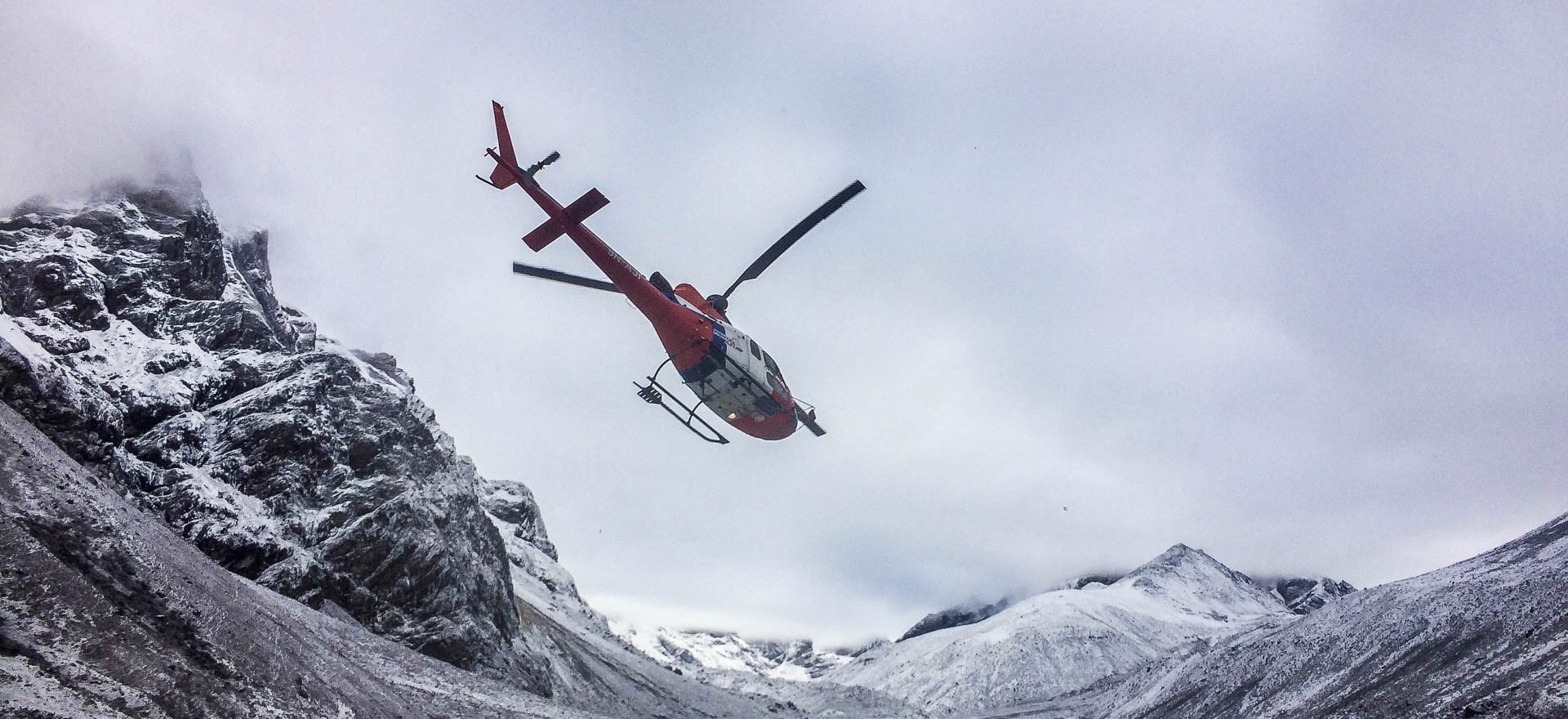
These high costs highlight the importance of obtaining suitable travel insurance prior to undertaking the trek. When choosing an insurance plan, make sure it covers emergency helicopter rescue and evacuation, hospitalization, and repatriation in the event of severe illness or injury. It's also important to check that the insurance policy covers trekking at high altitudes (the Everest Base Camp is over 5,000 meters high). Always read the policy's fine print to ensure you're adequately covered.
If an emergency situation arises, contact your insurance company as soon as possible. They will coordinate the rescue and medical services. Keep in mind, though, that due to the remote and rugged terrain of the Everest region, rescue might not be immediate, especially in bad weather conditions.
In summary, while no one wishes to face such emergencies, it is always wise to be prepared for all eventualities when embarking on a high-altitude trek like the Everest Base Camp. Always prioritize safety, acclimatize properly, stay hydrated, and listen to your body to reduce the risk of requiring emergency services.
Guide, Porter Tips Cost on Everest Base Camp Trek
Tipping is an integral part of the trekking culture in Nepal and provides a significant portion of a guide or porter's income. It's a way of showing appreciation for the hard work they do, often in challenging conditions. However, knowing how much to tip can be a bit tricky for first-time trekkers.
Typically, tipping amounts can vary greatly, but there are some general guidelines that can help you figure out an appropriate amount:
Tipping Guides: A common practice is to tip your guide around $5-7 per day. If you feel that your guide has provided exceptional service, you may consider tipping more.
Tipping Porters: Porters generally receive less than guides, with a typical tip being around $3-5 per day.
Remember, these are just guidelines and the amount you choose to tip should also take into consideration the length and difficulty of the trek, as well as the quality of service provided. Tipping is always a personal decision and should reflect your satisfaction with the services provided.
It's always a good idea to carry enough small denominations of Nepalese Rupees for tips. Tipping in local currency makes it easier for guides and porters to use the money. Typically, tips are given at the end of the trek. If you are in a group, you might pool the tips and distribute them in a small farewell ceremony.
Always remember that while tipping is customary, it is not a requirement. It is a token of appreciation for the service provided to you. Your trekking experience will not be compromised if you decide to tip less or not at all. What matters most is showing respect and gratitude for the hard work your guides and porters have put in to make your trek an unforgettable one.
Equipment Cost on Everest Base Camp Trek
The cost of equipment for your Everest Base Camp trek can vary widely based on what gear you already have, the quality of the gear you purchase, and where you purchase it from.
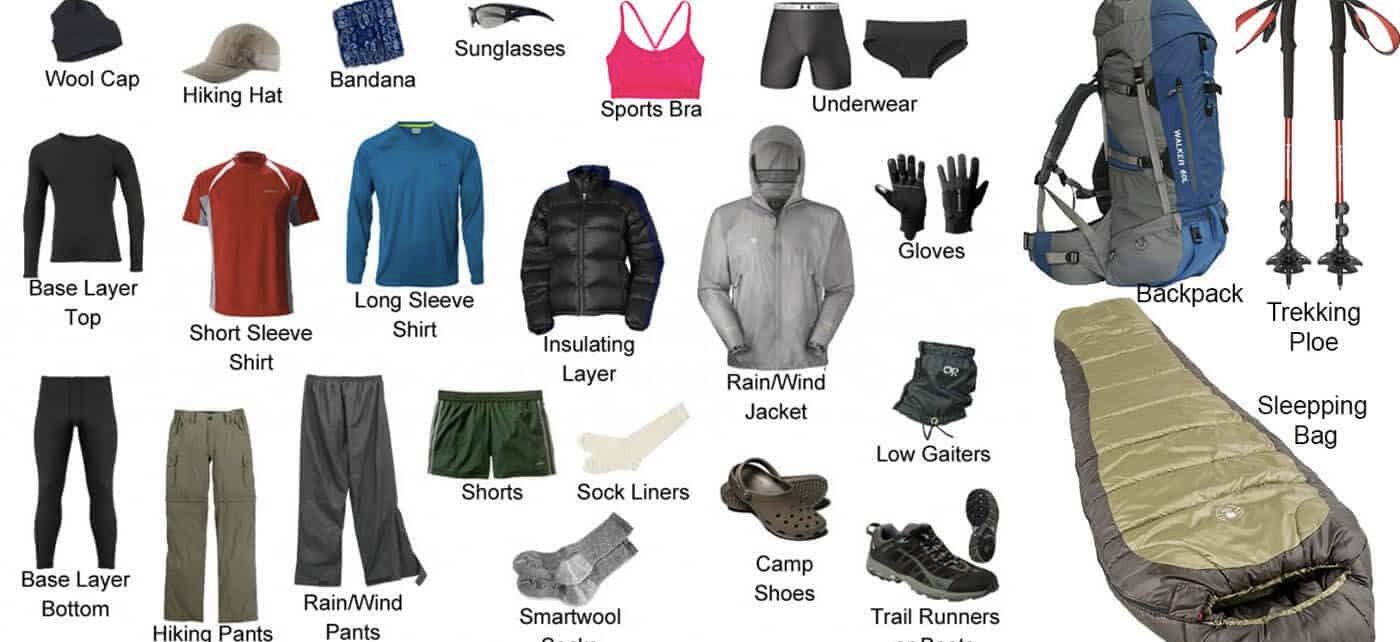
Here is a breakdown of some of the essential gear you'll need and the potential costs associated with them:
- Trekking Boots: A good pair of waterproof and warm hiking boots is crucial. They can range from $100 to $300.
- Down Jacket: A warm, lightweight down jacket is necessary for cold nights. This can cost between $100 to $300.
- Sleeping Bag: You'll need a sleeping bag rated for cold weather (about -10 degrees Celsius or 14 degrees Fahrenheit). These can cost between $100 to $400.
- Backpack: A sturdy and comfortable backpack of 50-60 liters is needed. These can range between $100 to $200.
- Trekking Poles: These are not essential but are extremely useful for maintaining balance and reducing strain on your knees. They typically cost $20 to $100.
- Water Purification Tablets/Filters: Rather than buying bottled water along the way, which is expensive and creates plastic waste, consider bringing water purification tablets or filters. These cost between $10 to $50.
- Headlamp: A headlamp is useful during power cuts and for any early-morning starts or late-night toilet trips. These usually cost $10 to $50.
- Other Clothing and Accessories: Thermal tops and bottoms, trekking pants, gloves, hats, sunglasses, sunscreen, water bottles, and other miscellaneous gear will also add to your total gear cost.
You can also rent some of this equipment in Kathmandu or purchase second-hand gear to save some money. Renting a down jacket or sleeping bag, for example, may cost around $1-$2 per day. However, make sure that any gear you rent or buy second-hand is of good quality and in good condition. Remember, this gear is critical to your safety and comfort during the trek.
When you're budgeting for your trek, don't forget to factor in the cost of any equipment you need to buy or rent. Depending on your choices, your gear costs can range from a couple of hundred dollars to well over a thousand. It's always a good idea to research, compare prices, and read reviews before making any significant gear purchases.
Cost of Everest Base Camp Heli Trek
The Everest Base Camp Helicopter Trek (or Heli Trek) is a more luxurious and quick option for those wishing to reach the base of Mount Everest. It provides a unique vantage point and the ability to see the grandeur of the Everest region in a shorter time span.
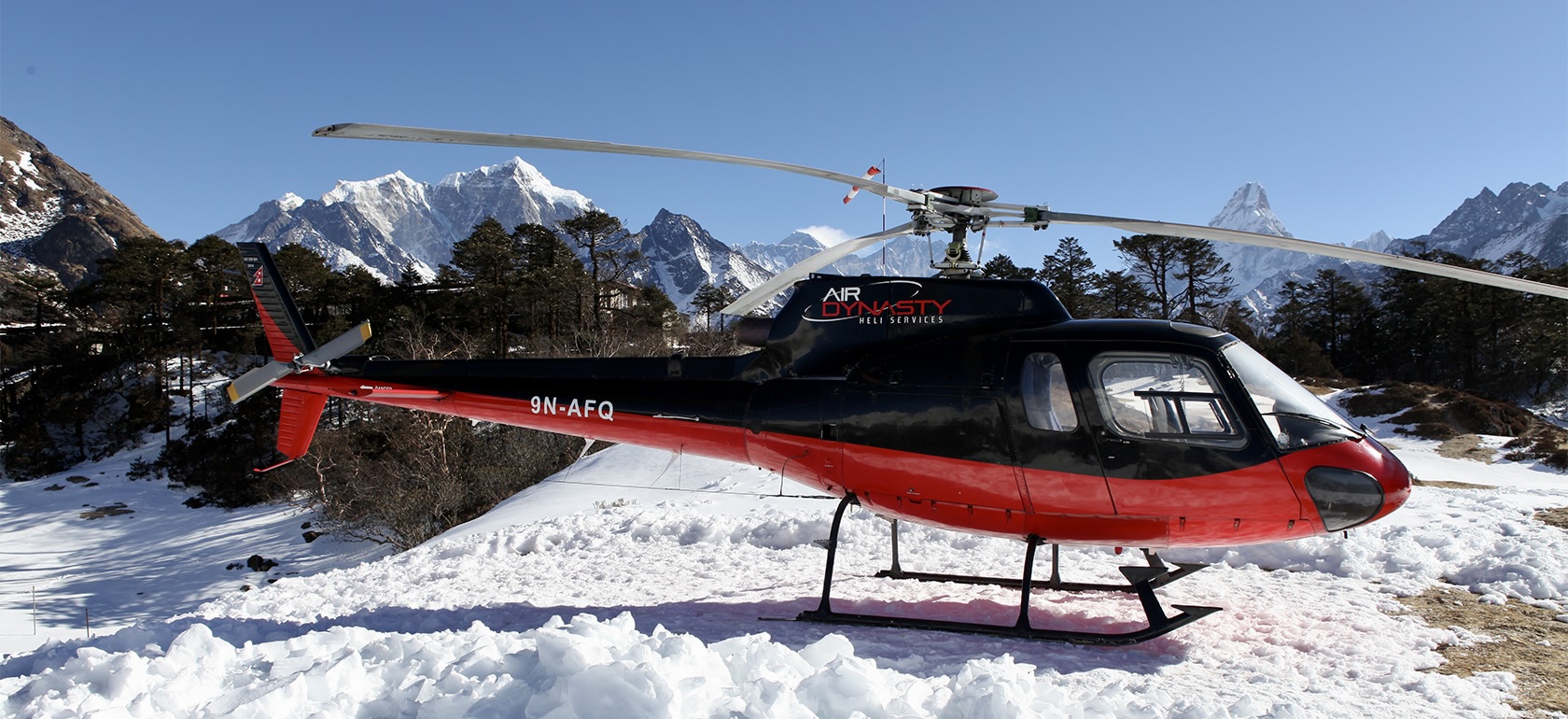
While costs can vary significantly depending on the tour operator and specific itinerary, you can generally expect to pay anywhere between $4,500 to $7,000 per person for an Everest Base Camp Heli Trek. This cost usually includes a guided trek up to Everest Base Camp, followed by a thrilling helicopter flight back to Kathmandu, offering spectacular aerial views of the Himalayan range.
Included in this cost are:
Flights: Return flights from Kathmandu to Lukla are typically included in this cost.
Accommodations: This usually covers teahouse accommodations during the trek and a hotel stay in Kathmandu.
Meals: Most meals during the trekking portion are included.
Permits: The Sagarmatha National Park entry permit and the Khumbu Pasang Lhamu Rural Municipality permit are usually covered.
Guide and porter: Professional English-speaking guides and porters to carry luggage are typically included.
Helicopter Flight: A helicopter ride from Everest Base Camp or Kala Patthar back to Kathmandu.
Keep in mind that prices can vary, and it's crucial to clarify what exactly is included in your package when booking. Additional expenses may include personal gear, snacks, and beverages, tips for your guide and porter, and travel insurance, which is highly recommended.
Cost of Luxury Everest Base Camp Trek
The Luxury Everest Base Camp Trek offers trekkers a more comfortable and lavish experience in the rugged terrain of the Himalayas. Rather than staying in basic teahouses along the trail, trekkers on a luxury trek will stay in high-quality lodges with superior facilities.
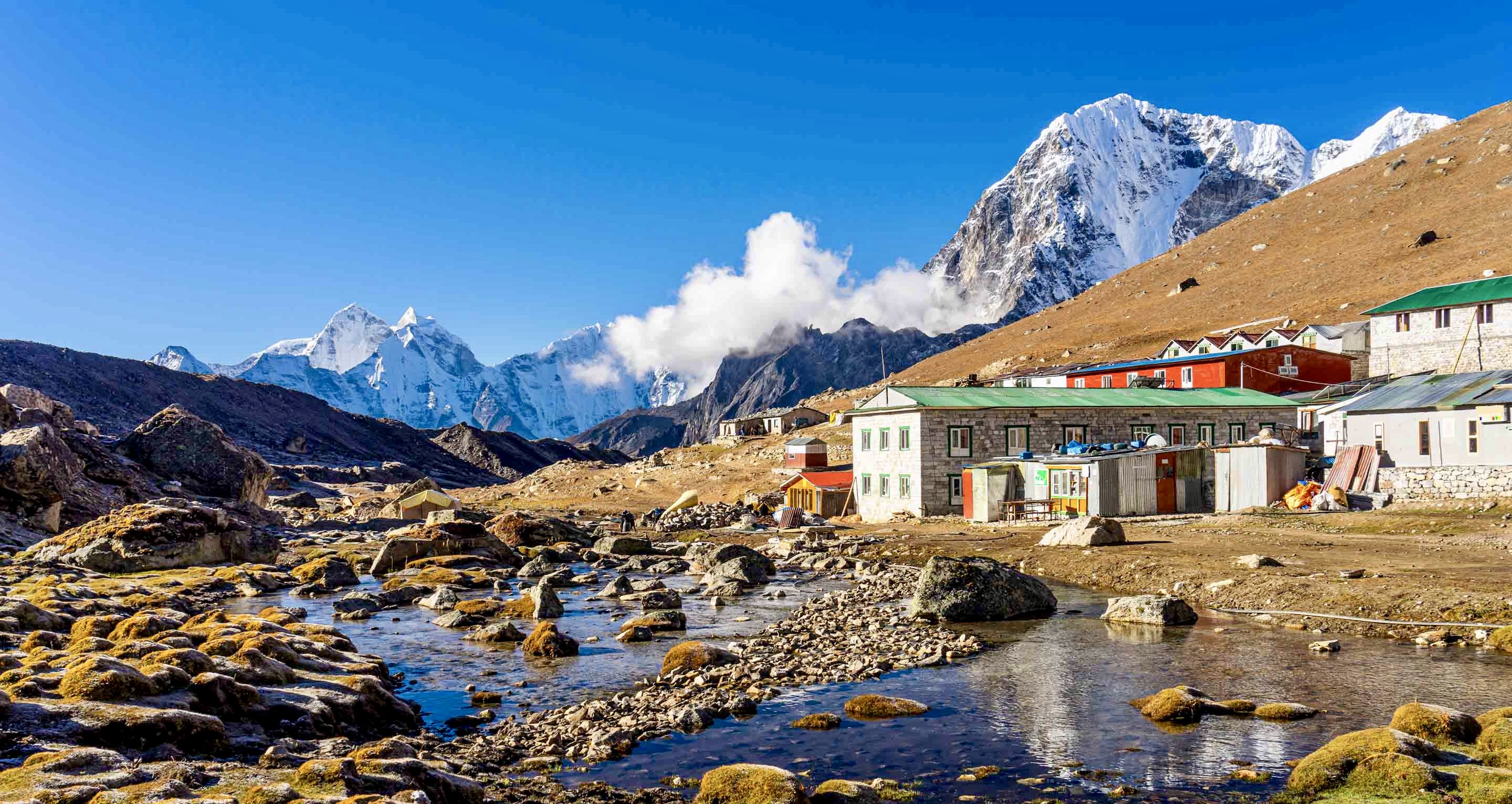
The cost of a Luxury Everest Base Camp Trek can vary greatly depending on the tour operator, specific itinerary, level of luxury, and services included in the package. Generally, you can expect to pay anywhere between $3,000 to $5,000 per person for a standard 12-15 day luxury trek. However, the cost can go up if the trek includes more luxurious or personalized amenities and services.
Here's a brief breakdown of what the cost typically includes:
Accommodations: Luxury lodge accommodations in the Everest region and high-end hotel accommodations in Kathmandu.
Meals: High-quality meals throughout the trek, usually including a wider variety of options than standard treks.
Flights: Return flights from Kathmandu to Lukla are typically included.
Transportation: Private ground transfers where required.
Permits: All necessary trekking permits.
Guide and porter: Services of experienced, English-speaking guides and porters, often with a lower client-to-guide ratio for more personalized service.
Medical kit: A comprehensive first aid kit for the group.
Remember, luxury treks do not make the physical challenge of trekking to Everest Base Camp any easier, and it's crucial to train properly and prepare for the high altitudes. Additionally, tips for your guide and porter, personal gear, snacks and drinks, and travel insurance are typically not included in these package prices. Always clarify what is and is not included when booking your trek.
The cost of the Everest Base Camp Trek can vary significantly, depending largely on your choice of trekking style, the level of comfort you desire, the specific tour operator you choose, and any additional personal expenses.
Regardless of the package or the route you choose, it's important to remember that the trek to Everest Base Camp is more than just a monetary investment. It requires physical and mental preparation, but the rewards - the spectacular mountain views, the cultural experiences, and the sense of accomplishment - are priceless.
The trek to Everest Base Camp is a true adventure, an experience of a lifetime that is worth every penny. Yes, the cost can seem high, but the memories you make, the challenges you overcome, and the majestic landscapes you witness make it a worthy investment.
Always remember, "The best view comes after the hardest climb". And in the case of the Everest Base Camp Trek, the view is worth every step, every breath, and every dollar spent. Happy trekking!
Frequently Asked Questions: What is the cost of the Everest Base Camp Trek?
Q: How much does the average Everest Base Camp Trek cost?
A: On average, the cost of the Everest Base Camp Trek can range from $1000 to $3000 depending on the type of trek (guided group trek, private trek, luxury trek), the duration, and what's included in the package (meals, accommodation, permits, flights, guides, porters).
Q: Are there any additional costs that I should be aware of during the trek?
A: Yes, you should account for additional costs such as tips for your guide and porter, personal expenses like snacks and drinks, charging electronic devices, Wi-Fi, hot showers, and potential emergency expenses such as a helicopter evacuation.
Q: What is the cost of flights for the trek?
A: A return flight from Kathmandu to Lukla costs around $350.
Q: How much does a guide or porter cost?
A: A professional guide can cost around $25-$30 per day while a porter may cost around $15-$20 per day.
Q: How much do the trekking permits cost?
A: The Sagarmatha National Park permit costs about $30 and the Khumbu Pasang Lhamu Rural Municipality permit costs about $20.
Q: Can I save money by doing the trek independently without a guide?
A: Trekking independently can save the cost of a guide or a porter. However, for safety reasons and to support the local economy, hiring a local guide is recommended. Additionally, a guide can help with navigation, and accommodation and provide valuable insights into the culture and geography of the area.
Q: How much should I budget for meals and drinks during the trek?
A: On average, budgeting around $20-$25 per day for food and drinks should be sufficient. This can fluctuate based on individual eating habits and choices.
Q: Do I need travel insurance for the Everest Base Camp Trek?
A: Yes, it's highly recommended to get travel insurance that covers emergency evacuation, hospitalization for altitude sickness, and other potential incidents. The cost of insurance can vary based on your age, the duration of coverage, and the specifics of the policy.
Q: What are the costs for equipment and gear for the trek?
A: The cost of gear and equipment can vary widely based on what you already own and the quality and brand of the items you purchase. On average, you might spend anywhere from a few hundred to over a thousand dollars on gear.
Q: Can I rent equipment for the trek?
A: Yes, there are numerous rental shops in Kathmandu where you can rent gear such as down jackets, sleeping bags, and trekking poles. The cost is generally quite affordable, around $1-$2 per day for each item.
Everest Region Trekking Packages
Everest Heli Trek with Kalapathher Landing
Gokyo Lakes and Everest Base Camp Trek
Everest Base Camp Heli Trek - 9 Days
VVIP Everest Base Camp Luxury Trek
Everest Base Camp and Gokyo Lakes Luxury Helicopter Trek
Luxury Everest Base Camp Trek - 14 Days
If you need any further information, please contact us by email: at [email protected], Phone: at +977- 985 100 5129 (WhatsApp)




